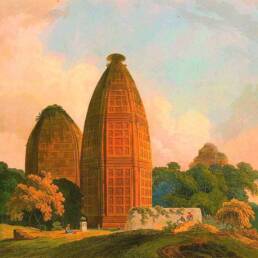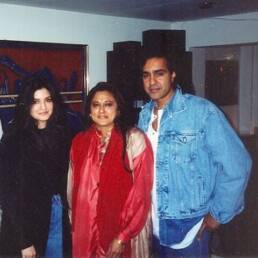It all started in Calcutta. The story of young Nagendra Prasad Sarbadhikari kicking a football for the first time in Calcutta FC ground that changed the course of Indian football forever, is fairly well known.
Wellington Club was founded in 1884 under his capable leadership. It was a prominent club in Calcutta Maidan that was founded with the goal of developing a Bengali team capable of competing against the Europeans.
Sarbadhikari envisioned an inclusive institution in which everyone would fight side by side, without prejudice. That was the only way forward, he knew that.
He was a forerunner of his time. He was a fierce critic of caste-based prejudices that were looming big in society, despite emerging from a very conservative Hindu household.
When a player from a confectioner’s family applied to join the Wellington Club, problems arose. His inclusion was met with intense opposition from the aristocratic upper caste.
Nagendra Prasad stood firmly with Moni Das, the son of a confectioner (or a potter, depending on whose account you read) from a lower caste family. His aim was clear: the club should be open to everyone.
He would not participate in the discrimination and decided to leave the club in protest. Attempts were made to persuade him to reconsider his decision.
He left the club, his own club, just to stay honest to his principles. 450 members also left the club with him leading to a tragic end for Wellington Club.
Sarbadhikari, thereafter, worked tirelessly to bring together a few other clubs, including the Sovabazar Rajbari club, which was predominantly a tennis club then, to form the illustrious Sovabazar Club in 1887.
It was his ideal club, free of any caste based discrimination. Moni Das was one of the first members of this club breaking the citadel of caste privilege.
Members of other castes, such as Carpenters, Potters, Fishermen, and Weavers, as well as members of various religious communities, such as Hindus, Parsis, and Mohammedans, flocked to join the organization.
Nagendra Prasad was the first Indian to dream of establishing sportsmen as a separate class by themselves. It was a modest step for football, but a huge one toward raising national consciousness.
Sources:
Football in Bengali Culture and Society: a study in the social history of football in Bengal/ Kausik Bandyopadhyay. Memoir of Father of Indian Football / PL Dutta. Mascular Christiniaty in Colonial and Post Colonial Worlds / Taylor & Francis. New Indian Express/PTI




